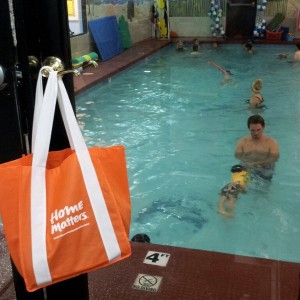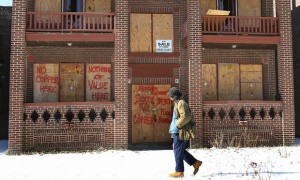Happy Halloween! We hope everyone has a fun and safe night of trick-or-treating. #happyhalloween #trickortreat #costumes #dressup #HomeIsHope #superman #nonprofit #community #support #giveback
Monthly Archives: October 2015
Instagram picture
@mercyhousing residents are getting in the Halloween spirit, #saycheese! #HomeIsHope #Halloween #community #friends #nonprofit #support #giveback
The Millennials Are Finally Moving, But Will They Find Home?
The long-awaited moment is here. The Millennials are on the move.
For the first time in almost a decade, America’s young adults are leaving home and forming their own households at a growing rate. The Millennial generation, now in their 20s and early 30s, have waited longer than any previous generation for this moment.
So, where will they go?
I remember the widespread optimism when I first left home in the mid-1980s. The country had spent the past century undergoing a great “regional income convergence,” with poor areas catching up to rich areas, until per-capita income was the most evenly distributed it had been in modern history. Everywhere I went, from New Jersey to Massachusetts to California to Washington DC, I found Americans of all income and skill levels living, working, and advancing together.
The Millennials face a very different America.
Since the 1980s, our cities and states have grown apart. The rich have gotten richer, and the rest have fallen behind. It used to be that these differences would drive people to move from the poorer areas to the richer ones, but not anymore. They can’t afford it.
Not everyone is worse off. A lawyer in a high-cost area like New York still winds up better off than if she lived in a low-cost area like the Deep South. As expensive as New York real estate is, it only takes about 20 percent of her paycheck. The janitor who cleans her office, however, is probably worse off. He’s paying over half his income for housing.
No wonder more people aren’t moving there.
So, where are they moving? According to the mortgage records at Realtor.com, the cities that top the list are Des Moines, Iowa; Provo, Utah; and Baton Rouge, Louisiana. In a word: Cheap.
There’s some evidence that they’re making a smart choice. Former Harvard Law School professor and current U.S. Senator Elizabeth Warren famously showed that middle-class families who tried to buy their way into wealthier neighborhoods with better schools had astonishingly high bankruptcy and foreclosure rates. Cheaper is safer.
But it’s not necessarily better. Cities with lower housing costs also tend to have lower wages, less productive firms, worse transportation infrastructure, more crime, more polluted air, underperforming schools, higher unemployment, fewer retail stores, and less entertainment.
Stanford economist Rebecca Diamond weighed these costs against the benefit of affordable housing, and she found that the lower-income workers who migrate to these cities wind up worse off than the higher-income workers who live in high-cost cities. As severe as income inequality has gotten, it actually understates the chasm between the two groups. The amenities are so much better in high-cost cities that they make inequality worse because so many lower-income workers can’t afford to move to these cities.
That’s the America that the Millennials face. (As an important side note, it is the America that many non-Millennials face too. But that’s for another time.)
Most people don’t make high incomes straight out of college. They need good jobs in productive firms to climb the socioeconomic ladder. When I left college, those opportunities were more widely available than they are today. It didn’t take a generous inheritance or an onerous loan to find a good home in a high-wage city—and it still shouldn’t.
There are two obvious ways to address this problem. The first is to make housing affordable in high-wage, high-productivity cities. The second is to raise wages, improve school quality, rebuild infrastructure, and revitalize neighborhoods in low-wage, low-productivity cities.
There is no reason that we can’t do both at the same time.
“Leaving home for the first time is one of the defining moments of life…it should result in a new home where a new family can grow and prosper and thrive.”TWEET THIS
Leaving home for the first time is one of the defining moments of life. It should be an exciting experience, full of possibility, as it was for most of my generation, and it should result in a new home where a new family can grow and prosper and thrive.
Whatever cities the Millennials choose, they will bring with them a welcome infusion of talent and taste all their own. Those assets deserve to be put to the best possible uses. We are still the land of opportunity, but we have to make those opportunities available to everyone, no matter where they live. In this challenge rests the fate of a generation.
Instagram picture
We’re kicking off our first official #mercyme Instagram Photo Challenge starting Sunday, November 1st! Make sure to use the hashtag #mercyme15 to be entered to win a $50 @amazonsmile gift card each week during the challenge. We can’t wait to see all your photos throughout the month of November!
#HomeIsHope #affordablehousing #instagram #november #photochallenge #novemberphotochallenge #win #prizes #freegiveaway #photography #contest #nonprofit #support #community #giveback
Instagram picture
Last Tuesday, 7 volunteers from The Private Bank, along with @mercyhousing Lakefront staff, partnered to clean and restore 139 chairs for the residents living at Carlton Apartments. Thank you to all our volunteers and staff who made this happen, the chairs look great!
#HomeIsHope #volunteer #renovate #thankyou #community #giveback #support #affordablehousing #nonprofit #teamwork
Tweet: Home is where you learn to swim. #ShareHomeIs http…
Status
Instagram picture
Happy #NationalPumpkinDay!
#pumpkin #orange #candle #heart #fall #HomeIsHope #halloweek #halloween #pumpkincarving #affordablehousing #giveback #support #nonprofit #community
Instagram picture
Hey Georgians, we’re officially three weeks away from Georgia Gives Day! On 11/12, mark your calendars and support @mercyhousing Southeast.
#GAgivesday #HomeIsHope #georgia #georgian #support #giveback #community #donate
Tweet: Home is climbing these steps every day #ShareHomeI…
Status
Instagram picture
Start your holiday shopping early and support a great cause. @aa_cherrycreek will be hosting a Charmed by Charity Event to benefit @mercyhousing. On Thursday, November 12th from 5-7pm, 15% of sales will be donated. Come join us and enjoy small bites, punch, jewelry and great company.
#HomeIsHope #holiday #shopping #greatcause #alexandani #jewlery #charmedbycharity #event #join #affordablehousing #community #denver #giveback #support #nonprofit
Tweet: #ShareHomeIs missing home & missing my family…
Status
Instagram picture
An awesome crew of @mercyhousing employees gathered at the Aromor Apartments in Denver last week for a “Thoughtful Thursday.” Volunteers helped paint, landscape and much more! Thank you to all of our volunteers and staff for putting on such a rewarding and thoughtful event.
#HomeIsHope #affordablehousing #Denver #nonprofit #thoughtfulthursday #paint #landscape #volunteers #event #rewarding #community #giveback #support #thankyou
Instagram picture
Wednesday night, Barbara Gualco, was recognized by the SFHAC for her dedication in providing affordable housing in the San Francisco area at the Housing Heroes Awards. Thank you for all your hard work Barbara!
Photo credit: San Francisco Housing Action Coalition
#HomeIsHope #affordablehousing #awards #congratulations #sanfrancisco #bayarea #dedication #hardwork #thankyou #nonprofit #community #giveback #support
Instagram picture
“Things really started to change when I moved into my Mercy Housing community… I felt grounded and safe.” Ginger, a former @mercyhousing resident, is now a pediatric nurse. Today, she spends her vacations volunteering on medical missions in developing countries.
#HomeIsHope #affordablehousing #housing #school #dreams #pediatric #nurse #vacations #medicalmissions #nonprofit #community #support #giveback
The Biggest Issue That No Presidential Candidate Is Talking About
The U.S. presidential race has done an amazing thing: It has made $28 trillion disappear.
That’s how much all the homes in the United States are worth. It’s one tenth of everything the U.S. owns. It’s more money than the entire economy produces in a year. And if you only listened to the presidential candidates, you’d never even know it existed.
This is a problem.
The president wields enormous influence over the housing market. The Department of Housing and Urban Development, which answers directly to the president, spends over $40 billion a year. Fannie Mae and Freddie Mac, which are currently owned by the federal government, hold a portfolio of $5 trillion in housing assets. They buy 72 percent of all new mortgages. The IRS gives homeowners $75 billion a year through the mortgage interest deduction—and billions more when they sell their homes for long-term capital gains.
So why don’t we hear about housing on the campaign trail? Why haven’t the debate moderators asked a single question about it? Why are the $1.2 trillion in student loans so much more talked about than the $13.5 trillion in mortgage loans?
We have made this mistake before.
The presidential elections in 2000 and 2004 were similarly devoid of housing policy. No candidate dared question the unprecedented and unsustainable rise in prices or the accompanying explosion of household debt. No one asked whether underwriting standards had gotten out of control or whether the banks should be taking such highly leveraged bets on nontraditional mortgages. No one thought it was necessary to mention that such high prices would make homeownership unaffordable for the next generation or that minorities still didn’t have as much access to the American dream as the rest of the population. Even when economists raised concerns that Fannie and Freddie could go bankrupt and require a taxpayer bailout, no major politician bothered to do anything about it.
We paid the price for their silence. The Great Recession was the worst economic crisis since the Great Depression, but it didn’t have to be. Our leaders could have tempered our expectations and restricted our excesses. They could have shone a light on new financial products and trends that seemed to deviate from historical norms—and even if they didn’t know what to do about it, they could have started a conversation before it was too late.
The only defense they have is that they could not have imagined how much it all mattered. They could not have foreseen how badly it all would end.
We no longer have that defense.
We know how fragile our housing finance system really is—how precipitously it can stop working, how rampantly it can disrupt our global society, and how long it can take to reassemble that delicate stability.
We also know (though we may have forgotten) how dynamic our housing finance system can be—how much wealth it can create, how many families it can nurture, and how vibrant a community it can cultivate. To run a presidential campaign without addressing housing is to forgo these goals. Surely, none of the current hopefuls would embrace such a capitulation.
And so, we must make housing part of the conversation.
Each generation of policymakers faces new challenges in housing. For the presidents of the nineteenth century, it was carving up the frontier and building new settlements on previously ungoverned plots of land. In the 1930s, it was resolving delinquent mortgages and jumpstarting bank lending from the depths of the depression. In the 1960s, the presidents turned their attention to racial discrimination and neighborhood segregation. From the 1980s forward, the focus was financial innovation and rapid growth.
There is no shortage of challenges for the current generation. In many cities, rents are rising faster than incomes, lenders are hesitant to trust borrowers, and jobs aren’t paying enough to cover down payments. Unsurprisingly, many young adults aren’t forming their own households. For minorities, these problems are even worse, with the Great Recession deepening and reinforcing the inequities that already existed between racial groups. If these trends continue, we risk losing everything our previous presidents have fought to achieve.
“The Great Recession was the worst economic crisis since the Great Depression, but it didn’t have to be.”TWEET THIS
The presidential campaigns to date have largely ignored these issues, and housing has gotten virtually no attention during the debates. One notable exception is tomorrow’s New Hampshire Housing Summit, sponsored by the Terwilliger Foundation for Housing America’s Families, where we will hear from 5 candidates on their views on housing. We need more programs like this.
The next president will inherit $28 trillion of peril and promise. No citizen is immune to these outcomes. And yet, no candidate has told us what kind of housing system we are voting for. With so much on the line, we deserve to know.
Instagram picture
#HomeIsHope #affordablehousing #friendship #heart #home #nonprofit #community #giveback #support
Tweet: Home is… #sharehomeis a place of birthing dream…
Status
Home is… #sharehomeis a place of birthing dreams…homemattersamerica.com/home-full-grid/
Instagram picture
Congratulations to 1180 4th Street, a @mercyhousing California property, for winning the Multifamily Executive Grand Award in the Affordable Housing category!
Photo credit: @brucedamonte
#HomeIsHope #award #congratulations #affordablehousing #SanFrancisco #community #giveback #support
Tweet: #ShareHomeIs Home is welcoming 2 dogs to their new…
Status
Instagram picture
Mental Health Awareness Week!
#mentalhealthawareness #HomeIsHope #homelessness #affordablehousing #giveback #community #support
Tweet: Home is a place where I know my mom is safe. – Chr…
Status
Tweet: What does home mean to you? We believe home means…
Status
What does home mean to you? We believe home means stronger, more sustainable communities. #ShareHomeIs #HomeMatters twitter.com/HomeMattersUSA…
Tweet: Home, to me, is anywhere that’s warm and there’s n…
Status
Home, to me, is anywhere that’s warm and there’s no snow. But especially at the farm in the summer#ShareHomeIsIs http://t.co/N8FTfUxTPx

Instagram picture
@mercyhousing is starting off the weekend with a big smile! #WorldSmileDay
#affordablehousing #HomeIsHope #community #support #giveback #nonprofit #weekend #smile #saycheese
Instagram picture
On Sept. 30th, 292 people and 41 sponsoring companies helped us to raise $214,000 to create hope for children and families in Chicago at our #MovingForwardTogether celebration! A family who lives at @mercyhousing Lakefront has thrived as a result of your support and joined us at the event earlier this week. Thank you everyone for #MovingForwardTogether!
#affordablehousing #community #fundraiser #event #celebration #support #giveback #nonprofit #Chicago
Instagram picture
On Sept. 30th, 292 people and 41 sponsoring companies helped us to raise $214,000 to create hope for children and families in Chicago at our #MovingForwardTogether celebration! A family who lives at @mercyhousing Lakefront has thrived as a result of your support and joined us at the event earlier this week. Thank you everyone for #MovingForwardTogether!
#affordablehousing #community #fundraiser #event #celebration #support #giveback #nonprofit #Chicago







